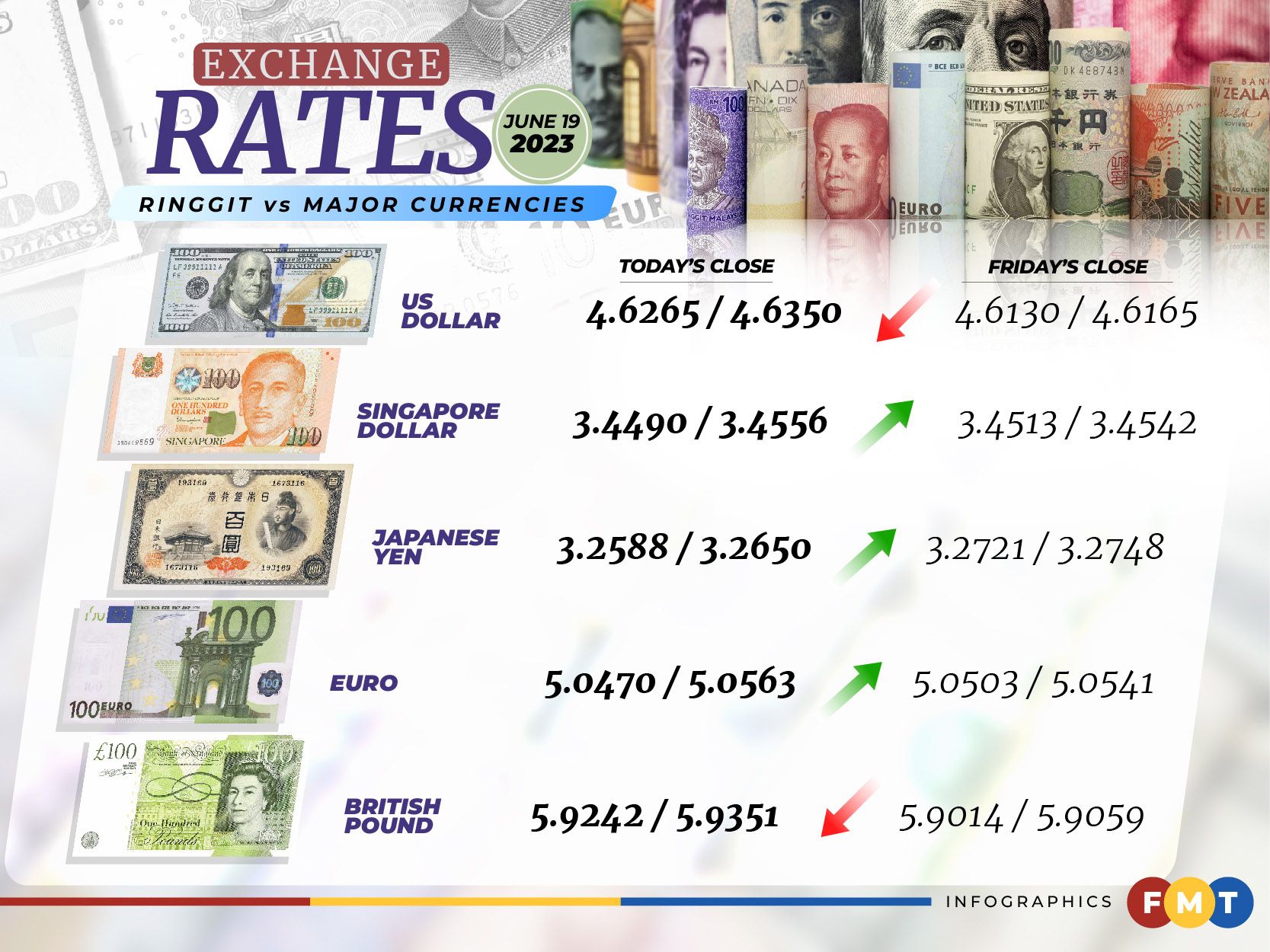
SPI Asset Management managing partner Stephen Innes said the foreign exchange market was quiet today as several major banks reduced their forecasts for China’s 2023 gross domestic product (GDP) growth.
“Oil prices are also taking a bearish turn on China GDP downgrades, but with rate cuts and policy stimulus on the cards, we could expect an oil price tug-of-war to ensue between the current weaker growth momentum and increased policy support,” he told Bernama.
Innes added that given the ringgit’s sensitivity to the Chinese yuan, traders were a bit negative on the ringgit at the start of the week.
Meanwhile, Bank Muamalat Malaysia Bhd chief economist Afzanizam Abdul Rashid said the ringgit remained soft as the US Dollar Index, Brent crude oil price and Chinese yuan were all pointing to a weaker ringgit.
He said investors were pinning their hopes on a sizeable economic stimulus from China’s authorities as the People’s Bank of China delivered an interest rate cut last week.
“There seems to be a risk-off mode gradually taking shape, leading to higher demand for the US dollar,” he said.
At 6pm, the local note ended at 4.6265/4.6350 against the greenback from 4.6130/4.6165 at the close last Friday.
Meanwhile, the ringgit was traded mostly higher against a basket of major currencies.
It depreciated versus the British pound to 5.9242/5.9351 from 5.9014/5.9059 last Friday, but appreciated against the Japanese yen to 3.2588/3.2650 from 3.2721/3.2748 and firmed vis-a-vis the euro to 5.0470/5.0563 from 5.0503/5.0541 previously.
The local note also traded mostly stronger against other Asean currencies.
The ringgit rose versus the Thai baht to 13.2926/13.3236 from last week’s 13.2974/13.3140, went up against the Singapore dollar to 3.4490/3.4556 from 3.4513/3.4542 previously, and gained vis-a-vis the Indonesian rupiah to 308.5/309.2 from 308.7/309.1.
But it slipped against the Philippine peso to 8.30/8.32 from 8.26/8.27 at last Friday’s close. - FMT



No comments:
Post a Comment
Note: Only a member of this blog may post a comment.